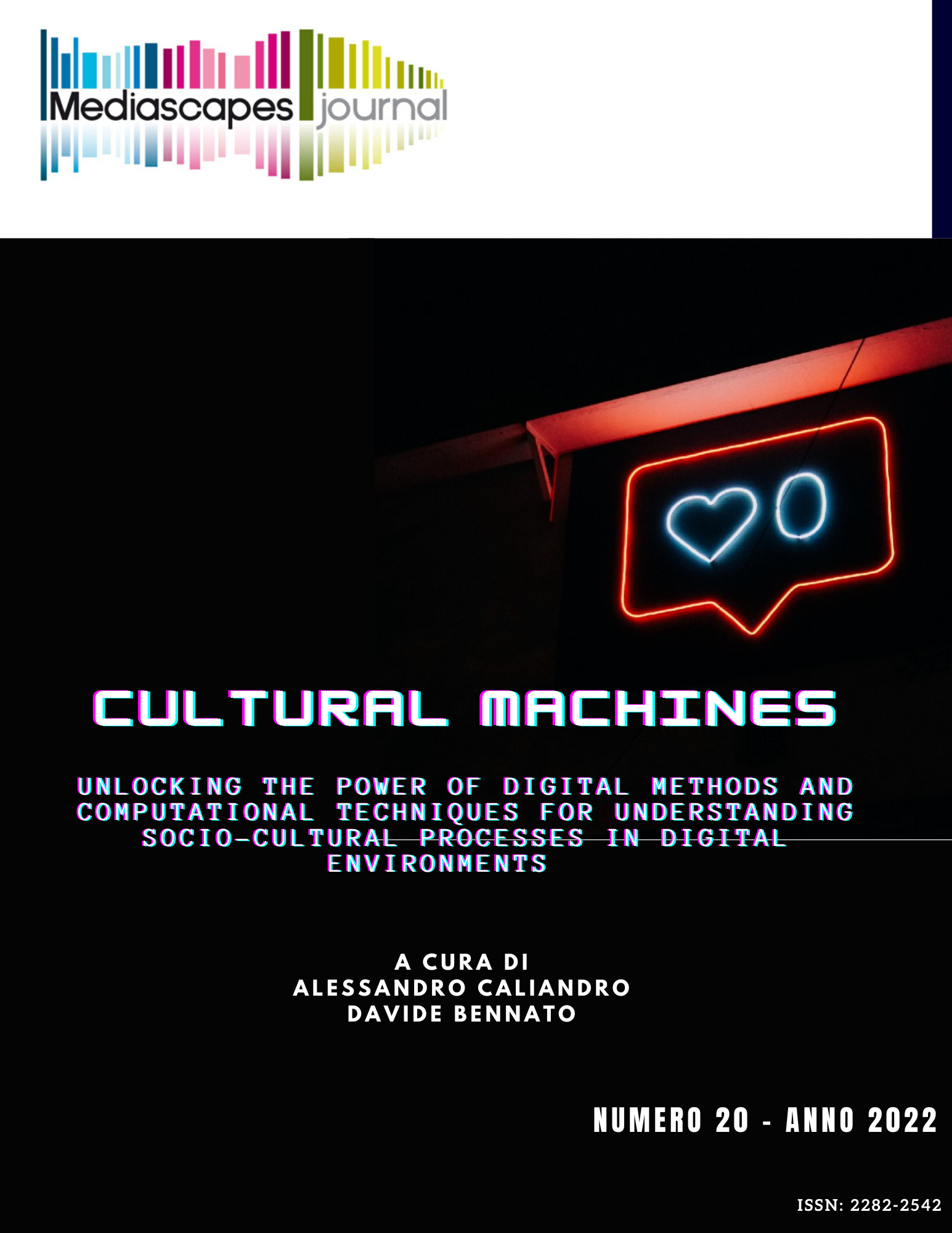La Media Education tra cultura partecipativa e intenzionalità civica
Due casi di studio
Parole chiave:
media education, cultura partecipativa, creatività, civic intentionalityAbstract
The mass diffusion of the web in the early 1990s, and the web 2.0 a decade later, has undoubtedly allowed a more democratic access to information and knowledge, and served as a catalyst for sociability and participation as it offers the possibility of cultivating spaces for discussion and sharing with a potentially infinite number of people. Since then innumerable forms of grassroot online engagement have been multiplying in the most diverse fields, from leisure, to politics, to civicism making concrete the possibility of a new digital public sphere (Marinelli and Cioni 2014, Bartoletti and Faccioli 2013, Dahlgren 2009). This socio-communicative ferment, which Jenkins (1992) describes with the controversial notion of “participatory culture”, has been questioned with the advent of the platform society (van Dijck, Poell, and de Waal, 2018). In this context, media education, understood as an educational practice aimed at developing critical thinking and creativity, faces new challenges to (re)assert its civic intentionality (Mihailidis 2019).
In this contribution we aim to argue that, however fundamental, the traditional media education goal of developing critical thinking today risks exacerbating, especially among the youngest, a "civic gap" between being critical and feeling a "call to action" in one's everyday life. In an attempt to reinvigorate the civic intentionality of media education, some empirical evidence from two European projects will be presented and discussed in which Jenkins’ notion of "participatory culture" is curved in the direction of this civic intentionality and tested for the development of the the “engaged citizen” (Mihailidis and Thevenin, 2013). Through the development of media education competencies which bring together the more traditional dimensions of critical analysis and creativity with the civic dimension proposed by Mihailidis (2019), we will analyse and evaluate some of the audiovisual content produced for the social communication campaigns created within the projects as well as the participatory processes put in place to implement them. We will also show how the acquisition of such competencies through specific training activities was crucial for the young people involved to develop a set of transversal key skills to play an active role in the construction of a more democratic, pluralistic, and inclusive society.



